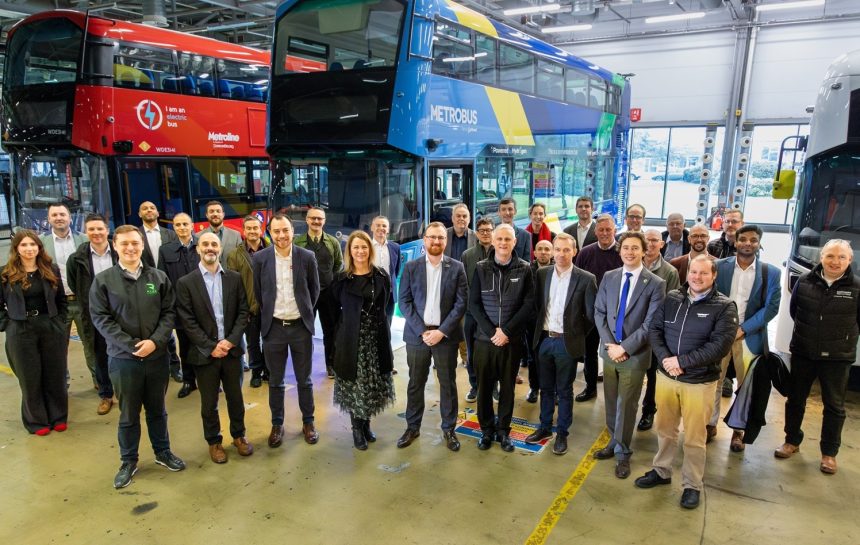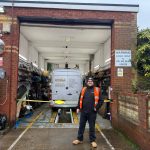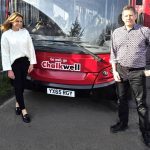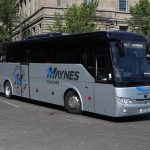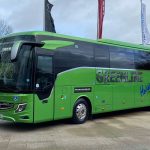Wrightbus has detailed a second-generation model of its StreetDeck Hydroliner hydrogen fuel cell-electric double-decker that will bring a “significant saving” on purchase price when compared to the existing variant.
The second-generation model will also deliver greater fuel efficiency and thus a longer range and easier servicing and maintenance. A 5% uplift in passenger capacity is also promised.
It is the fruit of a four-year project that was part-funded by the Advanced Propulsion Centre (APC) UK. A consortium of partners including Wrightbus, Grayson Thermal Systems, Queen’s University Belfast, HYGEN and Northern Ireland transport operator Translink have worked together with an aim to produce the new vehicle at scale.
Wrightbus says that the second-generation StreetDeck Hydroliner will act as a like-for-like replacement for a diesel bus with a range of over 300 miles and an eight-minute fuelling time.
Included is a new fuel cell from Ballard and what is described as “a highly efficient electric traction system.” Wrightbus adds that accessibility and safety features are enhanced, including a redesigned front to protect vulnerable road users.
Speaking about the model, Wrightbus CEO Jean-Marc Gales says: “We are delighted to unveil our next-generation hydrogen bus, which really showcases the breadth of knowledge and innovation we have here in Northern Ireland at Wrightbus and in our UK supply chain partners.
“Our development team has ensured that this flagship bus is more efficient, travels further, costs less and is easier to service and maintain, and we are grateful to APC and the Department for Business and Trade for their assistance with funding half of this project.
“Alongside our market-leading [battery-electric] bus, 95% of all buses produced by Wrightbus at our Ballymena factory are now zero-emission – a marked change on 2019, when 95% of all orders were for diesels.”
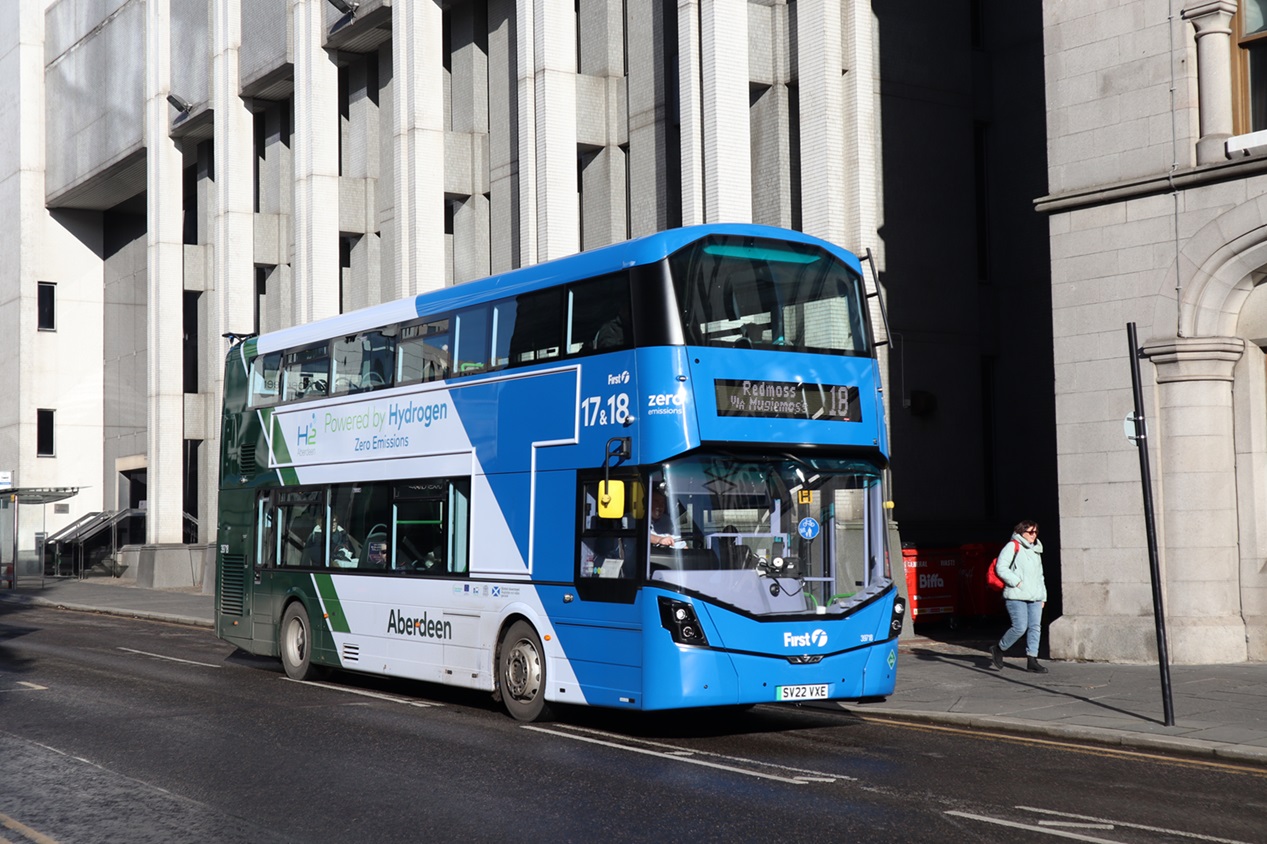
APC Stakeholder Engagement Director Philippa Oldham adds that the second-generation StreetDeck Hydroliner represents “the opportunity to commercialise this technology.”
She continues: “Buses around the globe have to operate within a variety of constraints, whether it be related to topography or loading demands. This means that there needs to be a variety of options for this sector and the success from this project shows that hydrogen fuel cell technology is a great solution.”
A second-generation StreetDeck Hydroliner from Wrightbus follows a similar evolution of the diesel StreetDeck Ultroliner. It was revealed in late 2024 and includes the addition of Cummins power to the Ultroliner for the first time.





















